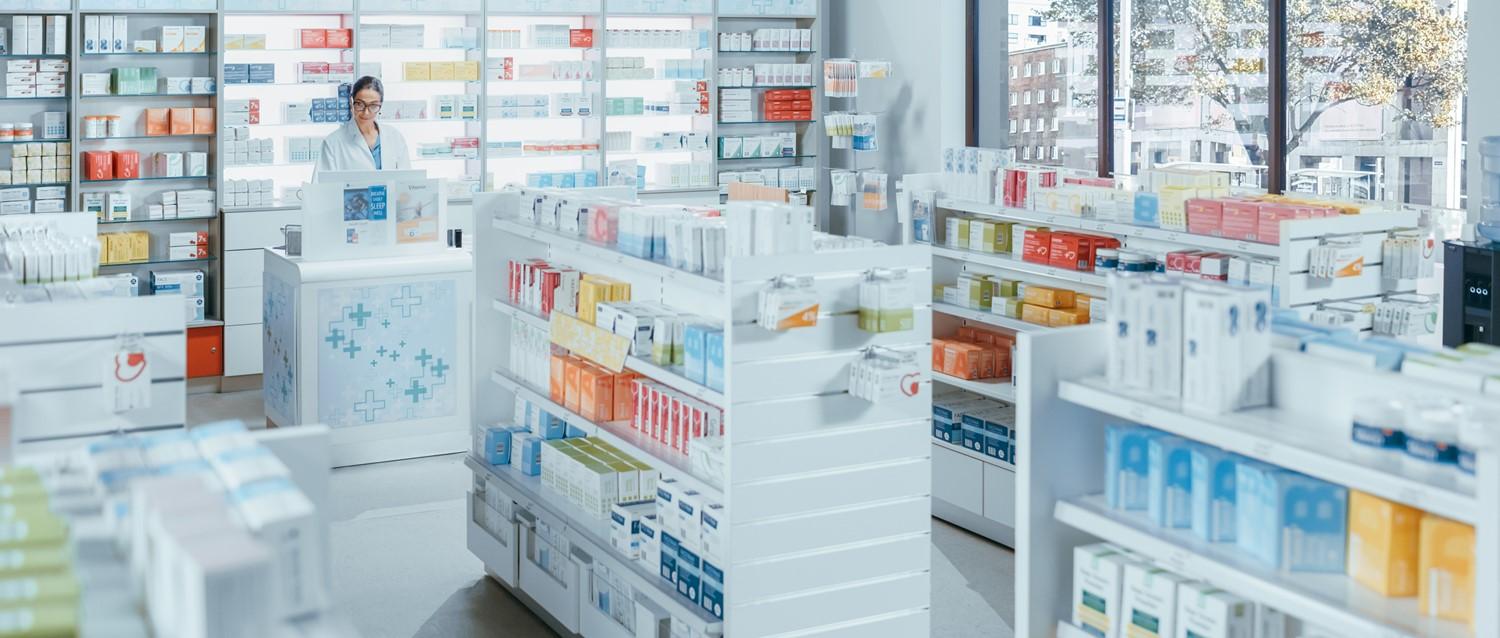
Will HRT for menopause soon be free over the counter?
Peer reviewed by Dr Sarah Jarvis MBE, FRCGPLast updated by Sally TurnerLast updated 13 Apr 2022
Meets Patient’s editorial guidelines
- DownloadDownload
- Share
- Language
- Discussion
Following a campaign last year, the government agreed to consider making certain types of hormone replacement therapy (HRT) available directly from pharmacists and to reduce the costs of HRT prescriptions significantly for women in England. But there has been confusion over what these proposed changes really mean in practical terms. We talk to a specialist doctor for more clarity on HRT for menopause.
In this article:
Continue reading below
What is hormone replacement therapy?
Hormone replacement therapy (HRT) is a lifeline for millions of women who experience menopausal symptoms as a result of declining oestrogen levels. In 2015, the National Institute for Health and Care Excellence (NICE) published official guidelines that recommended the therapy as an effective means of alleviating hot flushes, night sweats and low mood. HRT for menopause can also help alleviate sleep problems, joint pain, anxiety, and vaginal dryness and discomfort.
The hormones used in HRT (for menopause) are oestrogen and progestogen. Occasionally testosterone may be added, but it is often only accessible on private prescription. HRT is available as a topical oestrogen treatment (vaginal tablets, creams, pessaries and rings); or as a 'systemic' form, which acts throughout the whole body. Systemic HRT is available as oral pills, and for use transdermally through the skin (gels, sprays and skin patches). In addition, the progestogen element of systemic HRT can be provided using an intrauterine system, or IUS.
The UK Menopause Taskforce
Last year, the government declared that it would cut the cost of repeatable HRT prescriptions and there would be a move 'to save women who rely on HRT hundreds of pounds per year'.
It also announced that a UK Menopause Taskforce had been set up - a specialist team of government ministers and clinicians from across the UK on issues like HRT for menopause. The group has since met for its first inaugural meeting (in February 2022) with the intention of improving menopause support in healthcare settings and workplaces, and increasing access to menopause treatments including HRT.
Continue reading below
Will I soon be able to get HRT over the counter?
Recent media headlines indicating that HRT may soon be available without a prescription have been a source of confusion for many, with women wondering if this announcement refers to systemic HRT in the form of oral tablets, patches and gels. To be clear, recent government proposals refer to vaginal oestrogen only, not to systemic HRT.
A public consultation went ahead in February to assess whether Gina 10 microgram vaginal tablets (estradiol) should be made available 'over the counter' at UK pharmacies. Gina is a vaginal oestrogen supplement that is inserted into the vagina. It is equivalent to Vagifem and similar brands. The outcome of the consultation has not yet been made public, but it is likely that health watchdogs will propose a reclassification of the treatment from a prescription-only medicine (POM) to one available to purchase in pharmacies after a consultation with a pharmacist (P).
The types of HRT
"It's important when talking about changes to HRT access that we understand the scope of the term 'HRT'," explains Dr Heather Currie MBE, a specialist gynaecologist and associate medical director at Dumfries and Galloway NHS, and past Chair of the British Menopause Society.
"When we talk about HRT, those of us who specialise in treating symptoms of menopause are generally talking about systemic HRT. It would be unusual to refer to vaginal oestrogen as HRT. Low-dose oestrogen tablets, creams and rings act locally on the vagina, vulva and bladder so they don't have the broader impact, risks, or side effects associated with HRT in the broader sense. It is systemic HRT - given as oral tablets, or skin patches, gels and sprays - that replaces oestrogen throughout the body."
Currie is in favour of vaginal oestrogen tablets being made available in pharmacies as a treatment option for menopausal vaginal dryness and bladder symptoms.
"It is completely appropriate for vaginal oestrogen to become available over the counter in consultation with pharmacists," she continues. "It is very effective at treating these intimate menopausal symptoms and there is minimal risk to health. Pharmacists will need to ask questions to ensure HRT for menopause is appropriate for each individual and that symptoms aren't due to thrush, vulvodynia or health issues other than menopausal atrophy (thinning of the vaginal tissues)."
Will HRT direct from my pharmacy be free?
If Gina vaginal tablets are dispensed at pharmacies, women will be charged the full cost of the product (yet to be announced), which may be substantially more than the cost of getting it on NHS prescription. It is not clear yet how many tablets will be offered for one prescription charge.
"So you would have to weigh up the potentially higher cost against the convenience of being able to get it without a prescription or a doctor's appointment," says Currie. "It won't be worthwhile for all women who want to use vaginal oestrogen HRT for menopause, but it's certainly a step forward in providing greater access to treatments for menopausal symptoms."
It's worth noting that in Wales, Scotland and Northern Ireland everyone is entitled to free NHS prescriptions, but in England, a prescription charge of £9.35 is payable per item for people who are not exempt.
Around 40% of people in England are liable to pay prescription charges, but in practice, approximately 90% of prescriptions are dispensed free of charge. This is because prescriptions are free to those aged 60 and over, who are the primary recipients of medications as they age. (Prescriptions are also free to under-16s, students aged 16-18, those on a low income, expectant and new mothers, and people with certain medical conditions.)
Continue reading below
Will I save money on my yearly prescriptions for systemic HRT?
Combined HRT for one prescription charge
In addition to greater access to topical HRT, the government is also looking to make both oestrogen and progestogen available for a single prescription charge. This will help to reduce costs for women who are taking combined systemic HRT for menopause symptoms.
Currently, in England, two prescription charges are liable for some forms of combined HRT - one for the oestrogen and another for the progestogen element - as the latter is required to prevent thickening of the womb lining (in women who have not had a hysterectomy). Some women also use topical vaginal oestrogen (such as Gina or Vagifem) in combination with systemic HRT to treat vaginal dryness and bladder symptoms specifically. This would incur a third prescription charge.
As an example, a woman living in England and on continuous HRT, who is given a prescription every two months for oestrogen and progestogen (two prescription charges totalling £18.70) will spend £112.20 per year. The cost of prescriptions can be capped by purchasing a prescription pre-payment certificate (PPC), which can be paid for in instalments. A holder of a 12-month certificate (costing £108.10 in total) can get all the prescriptions they need (all medications, including HRT) for just over £2 per week.
Longer prescribing cycles to reduce costs
Longer prescribing cycles have also been suggested: this means that more HRT (for use at the same dose but over a longer period of time) would be made available for a single prescription charge. The government claims that longer prescription cycles could mean that 'women would only have to pay one charge for up to a 12-month supply of HRT, saving up to £205 per year as a result.'
It seems unlikely that most women on HRT for menopause would make a saving at the top end of this estimate.The cost would be dependent on various factors including which hormones are used and how often they are prescribed.
"Current prescribing practice in England is down to each surgery in relation to how long they prescribe for," explains Currie. "GPs might be prescribing HRT for one to three months at a time. New proposals are about having a prescription for a longer duration and therefore in England paying less often for one prescription."
When will these new rulings on HRT come into effect and are there likely to be further changes moving forward?
The practicalities of how to implement the government's new proposals are still in discussion and yet to be finalised. The government is working with NHS England and in consultation with other relevant groups to determine how and when to make the proposed changes.
"It's highly likely that vaginal oestrogen will become available soon from pharmacies," adds Currie. "But the likelihood of systemic HRT becoming available without a prescription is a long way off because there's so much to take into consideration around individual assessment and safety."
More information about menopause and HRT prescription changes
"HRT has been beset with issues over safety and misinformation, but the latest evidence suggests that in the majority of women who experience troublesome menopausal symptoms, the benefits outweigh the risks," advises Currie.
However, not all women will require HRT or menopause and there are other alternatives that may help treat menopausal symptoms. These include healthy eating, exercise, dietary supplements and complementary therapies.
If you think you may benefit from taking HRT for menopause, talk to your GP in the first instance. They may refer you to a menopause specialist doctor, and many areas of the UK have specialist NHS menopause clinics.
For information about the UK Menopause Taskforce and proposed prescription changes for HRT, visit the UK government's Department of Health and Social Care. Tips and advice about menopause, and managing symptoms, are available at Menopause Matters, a website founded by Dr Heather Currie. Further information is also available on our website hub at Patient.
Patient picks for Menopause and HRT

Hormones
What are the signs HRT is not working anymore?
Hormone replacement therapy (HRT) has transformed the lives of many women troubled by debilitating symptoms at menopause. But after taking HRT for a couple of years, some women find their symptoms begin to return. Why does this happen and what can be done to remedy the issue?
by Amberley Davis

Hormones
Can blood tests help to manage menopause and HRT?
There is increasing interest in whether blood testing can predict the onset of menopause, and whether it is useful in the management of hormone replacement therapy (HRT). We ask the experts if blood tests to assess hormones are worth considering.
by Sally Turner
Continue reading below
Article history
The information on this page is peer reviewed by qualified clinicians.
13 Apr 2022 | Latest version

Ask, share, connect.
Browse discussions, ask questions, and share experiences across hundreds of health topics.

Feeling unwell?
Assess your symptoms online for free
Sign up to the Patient newsletter
Your weekly dose of clear, trustworthy health advice - written to help you feel informed, confident and in control.
By subscribing you accept our Privacy Policy. You can unsubscribe at any time. We never sell your data.